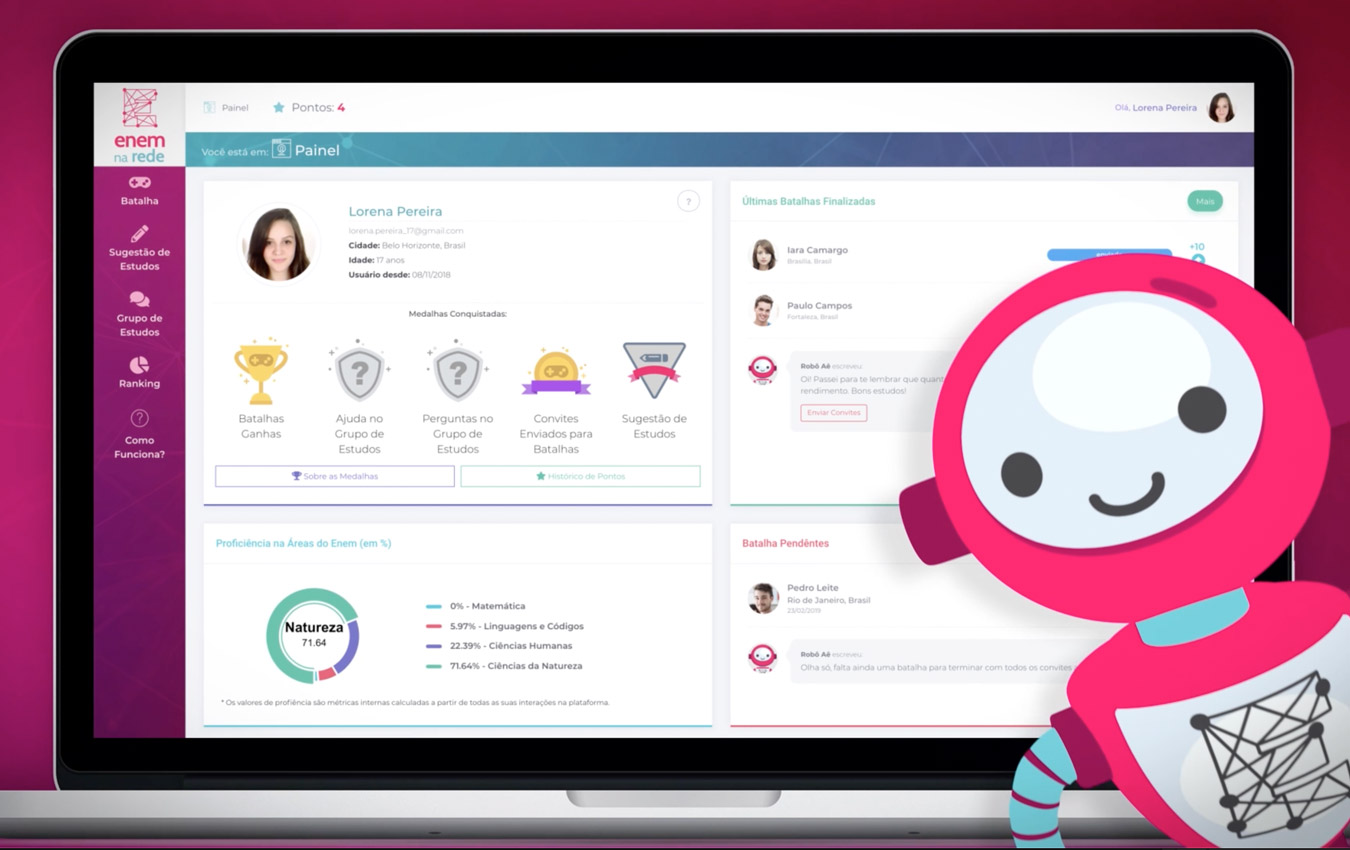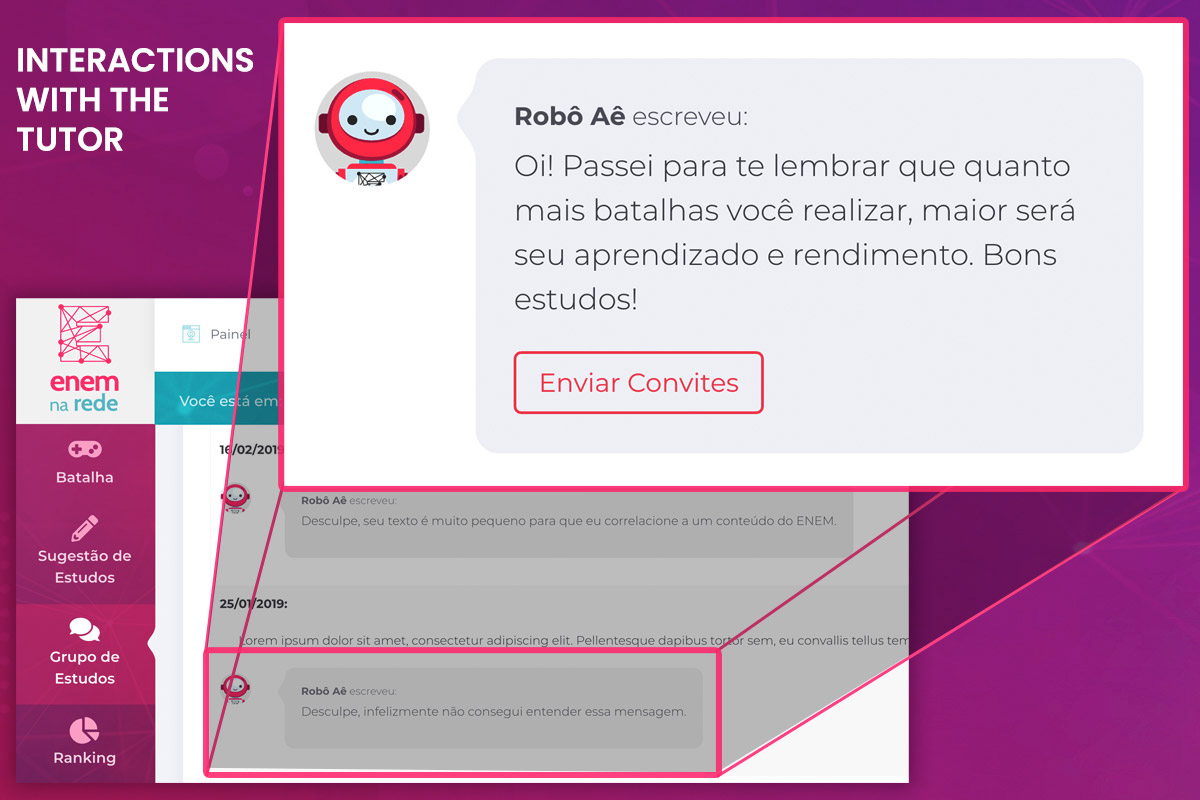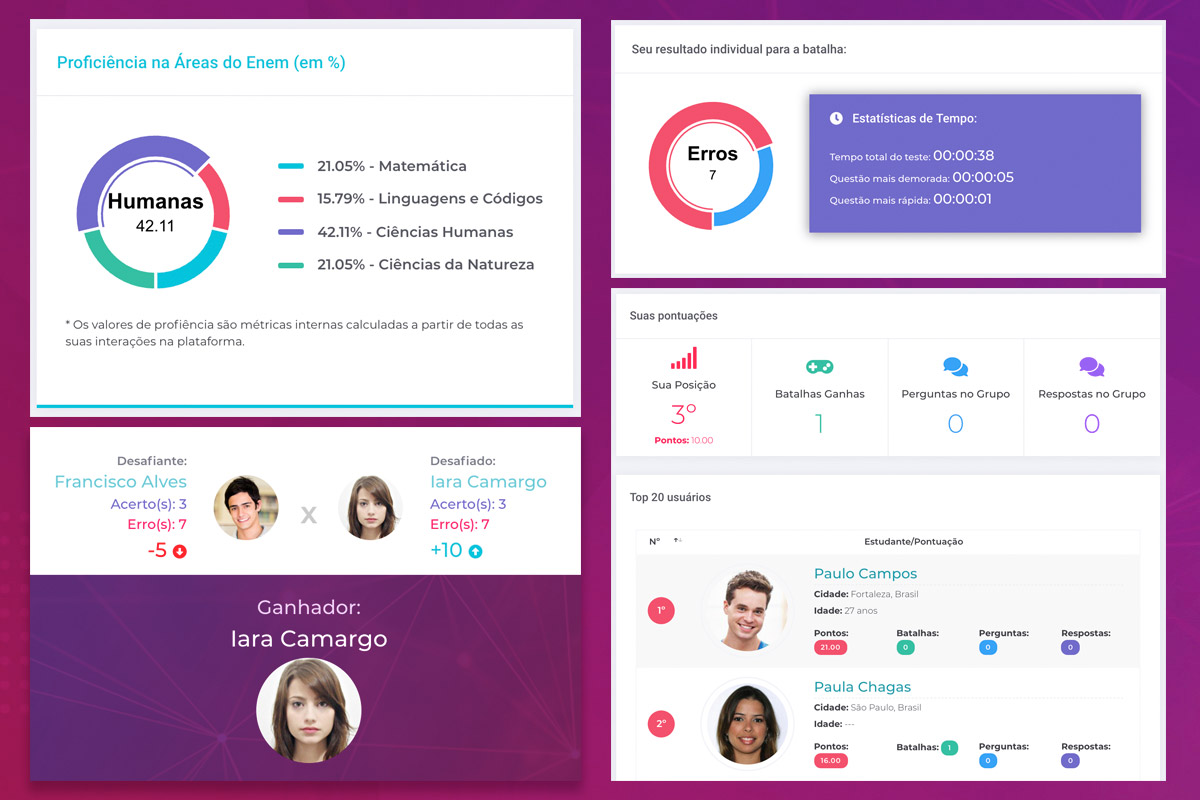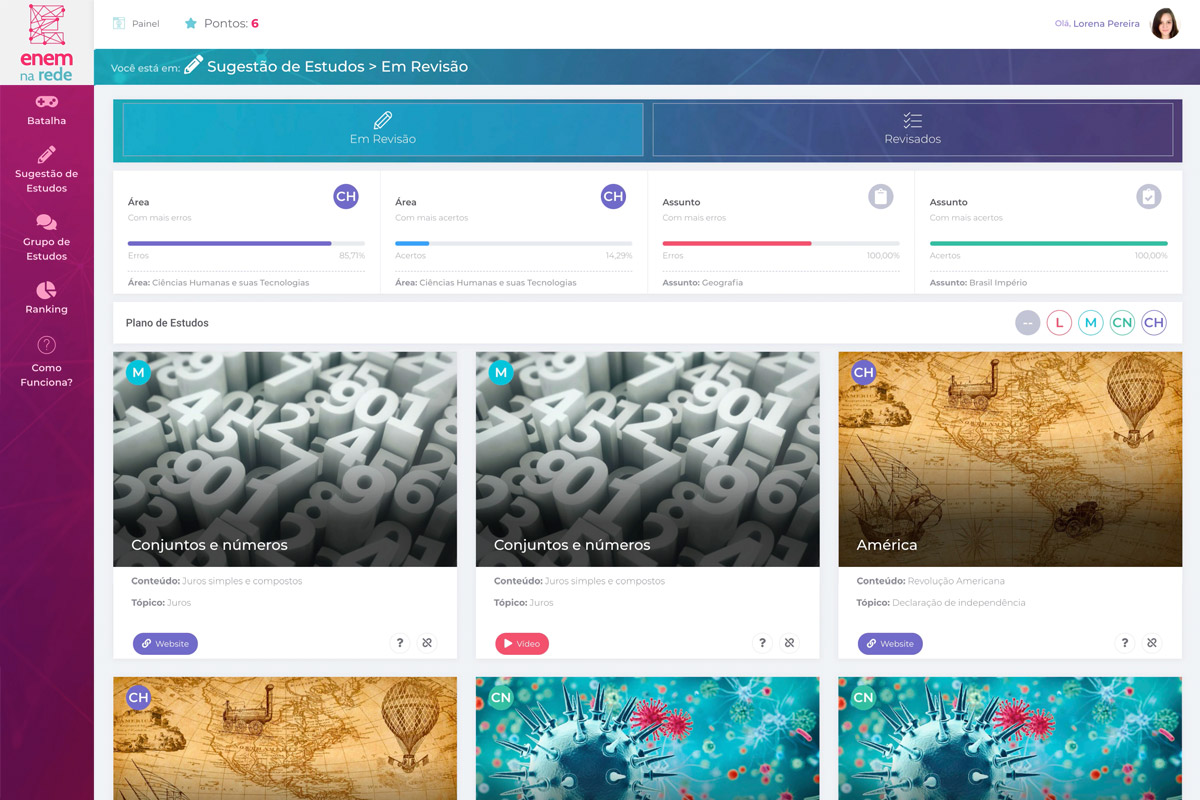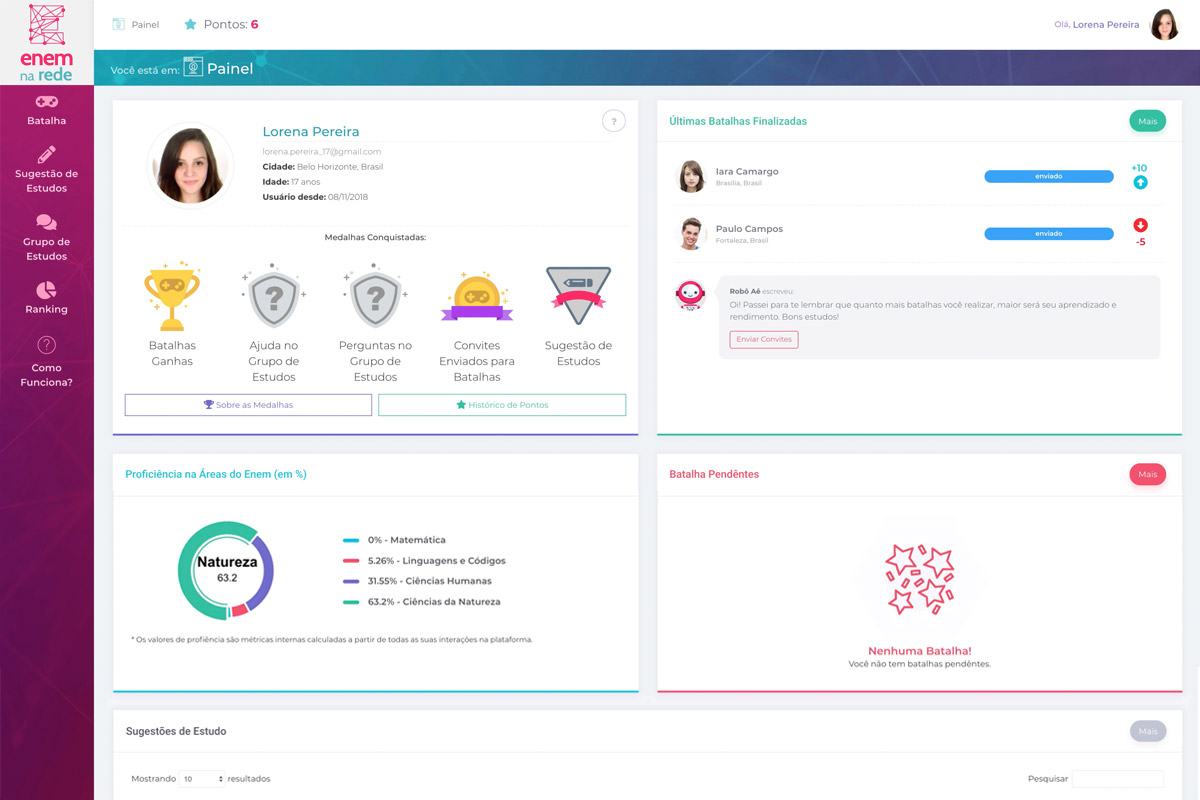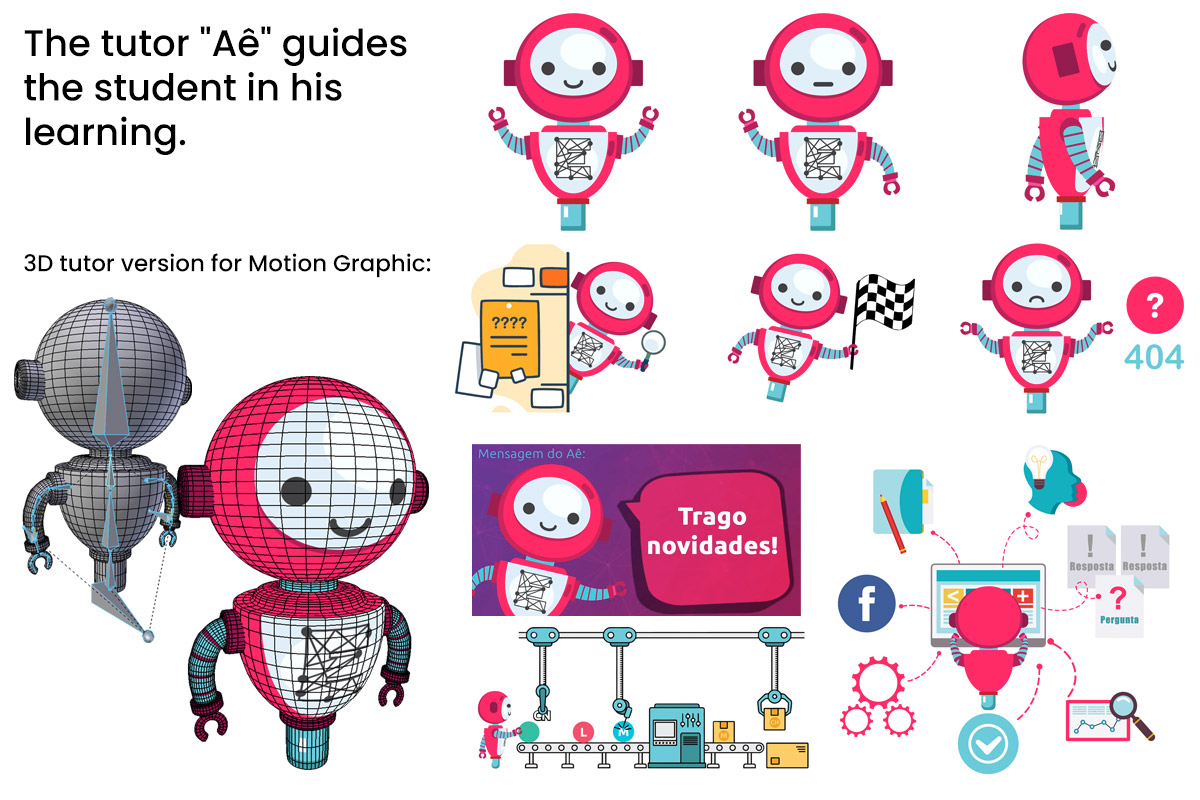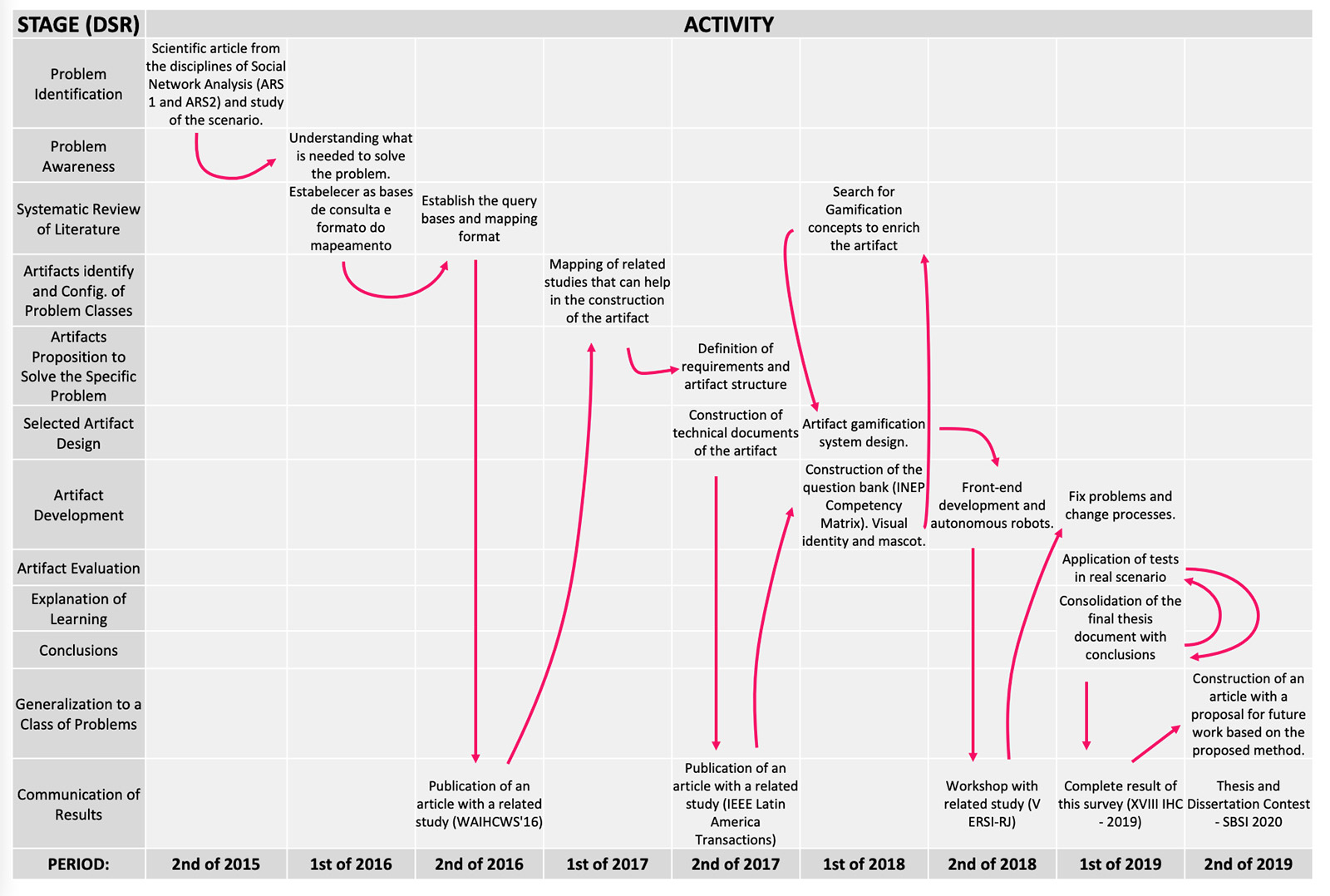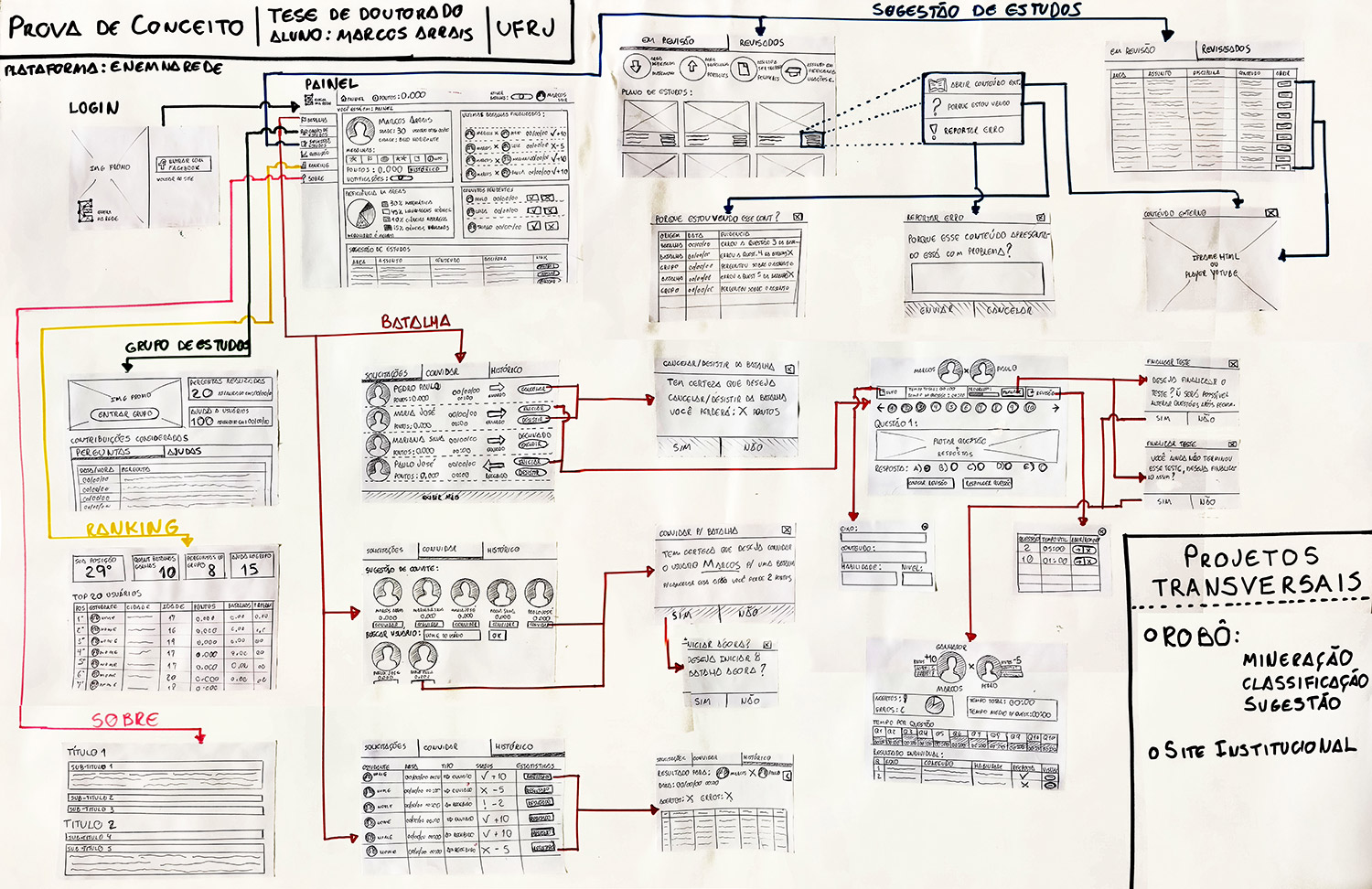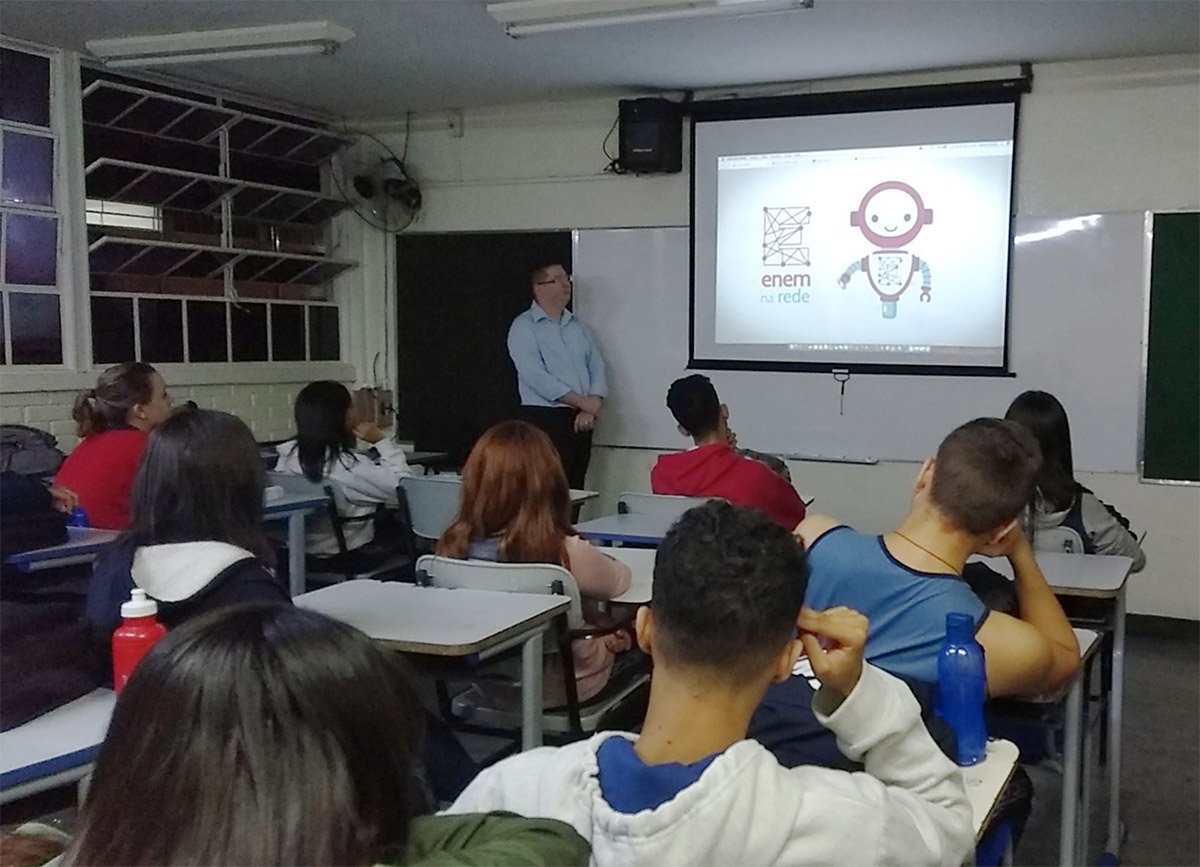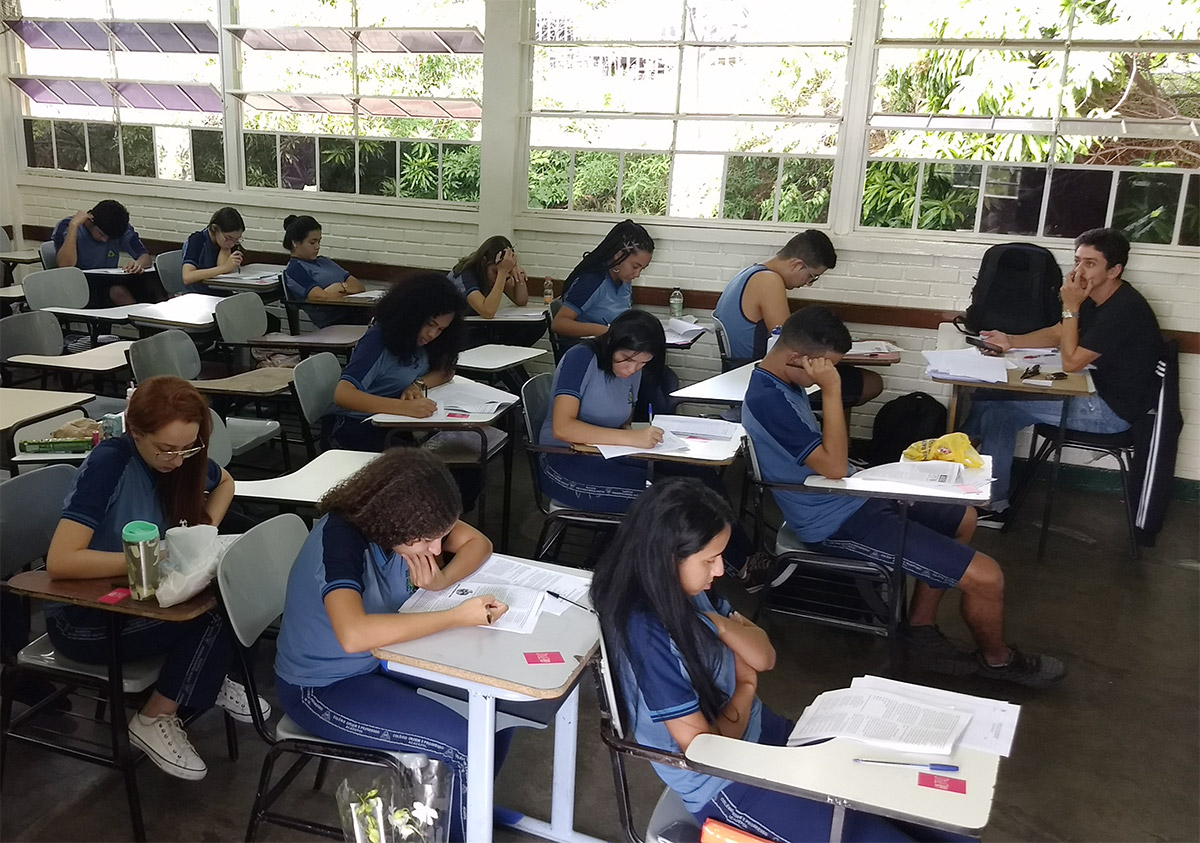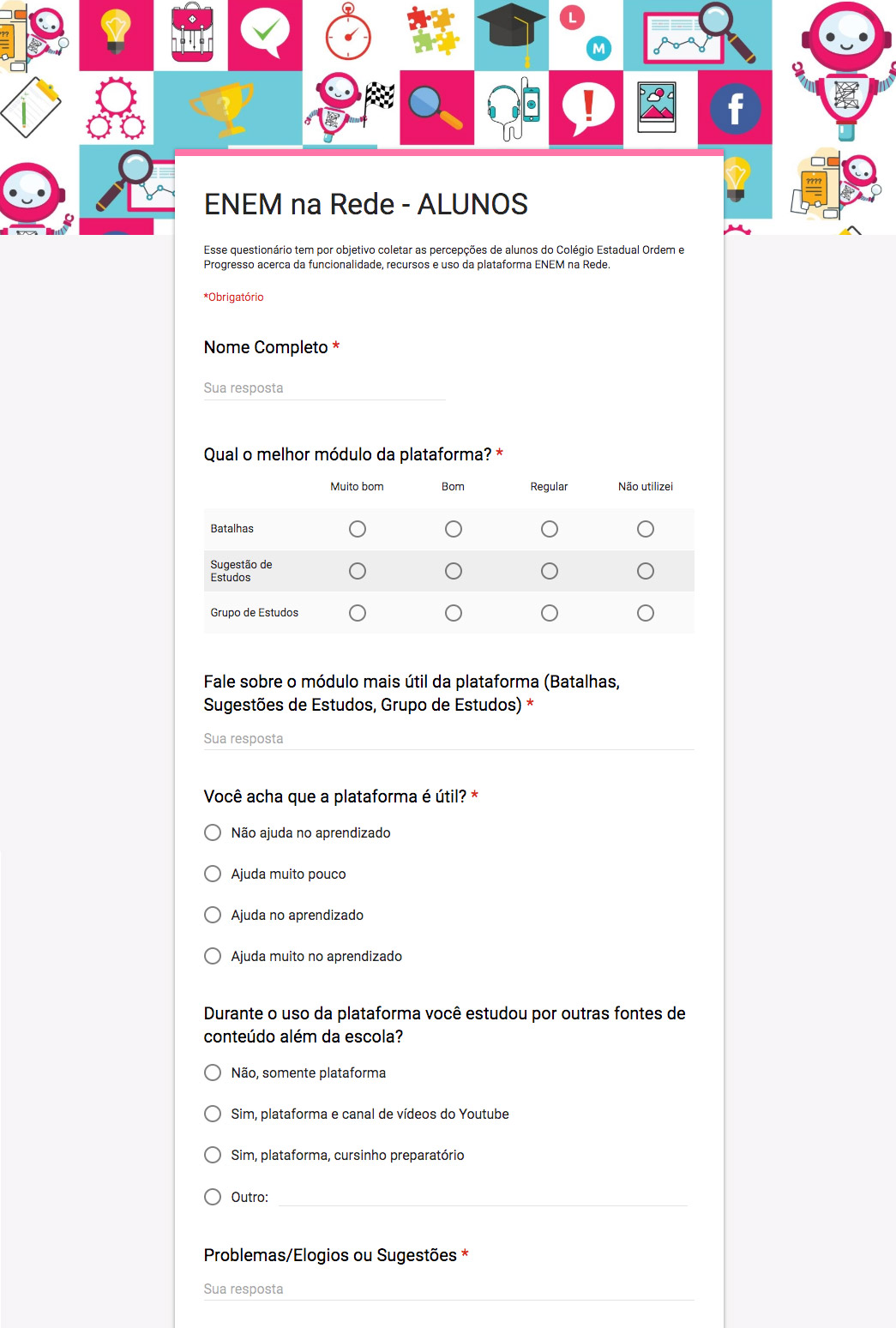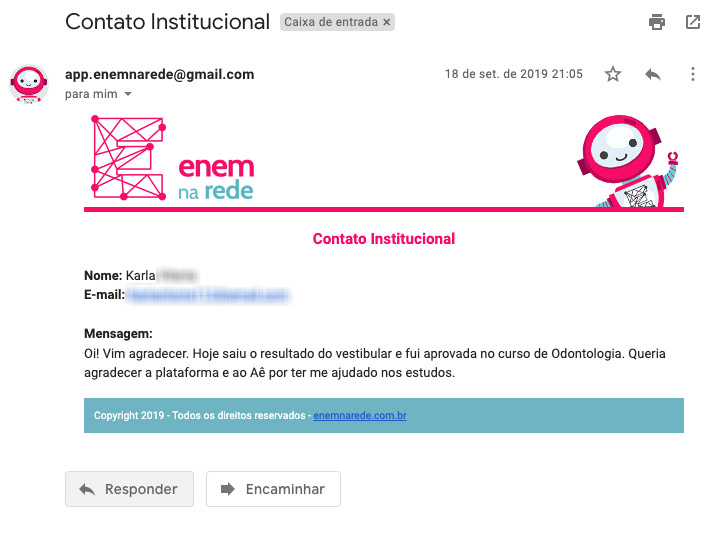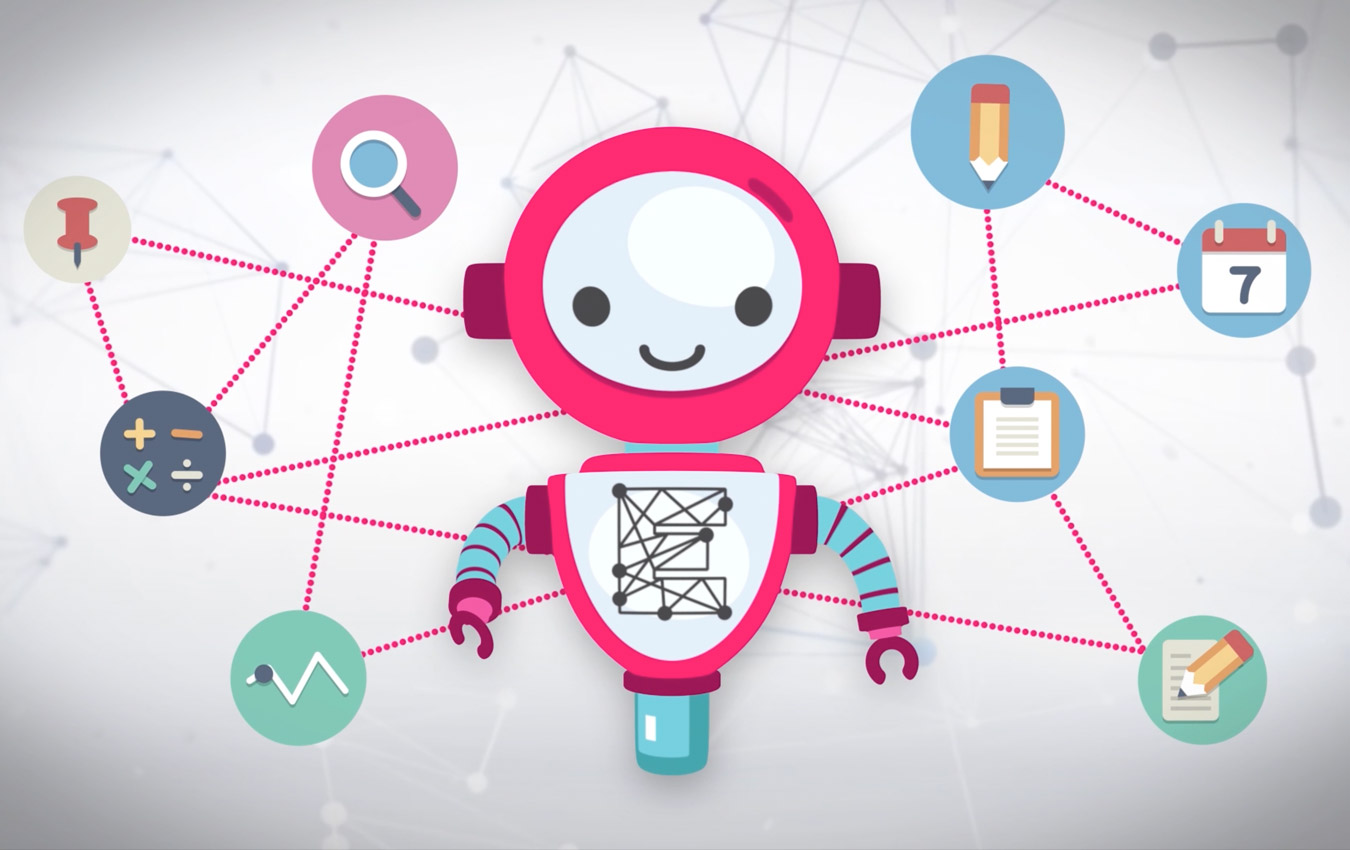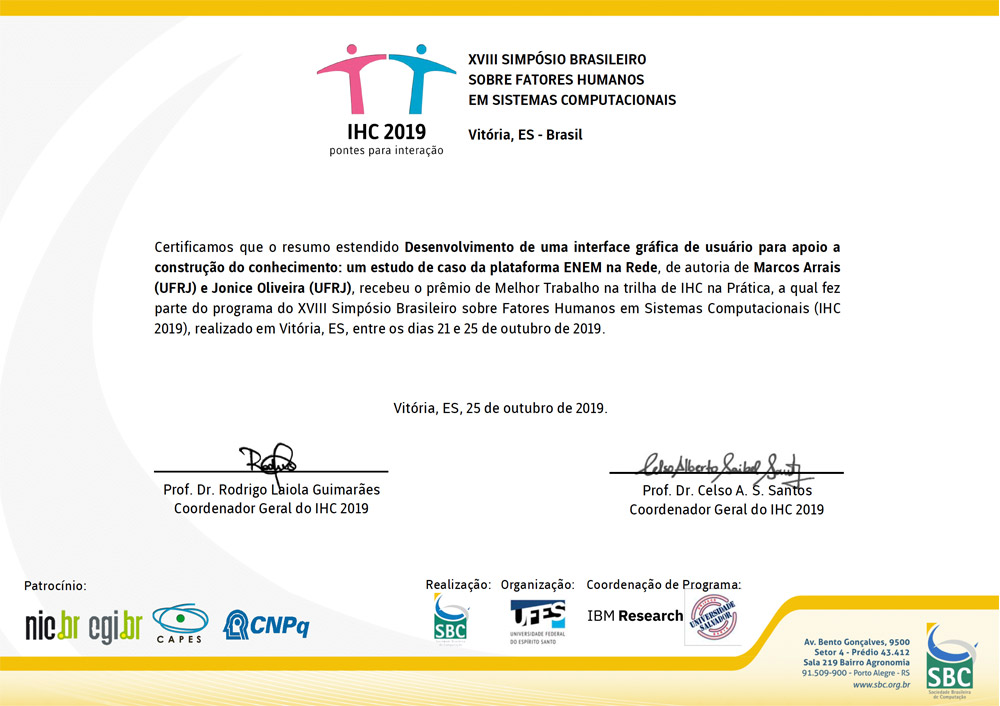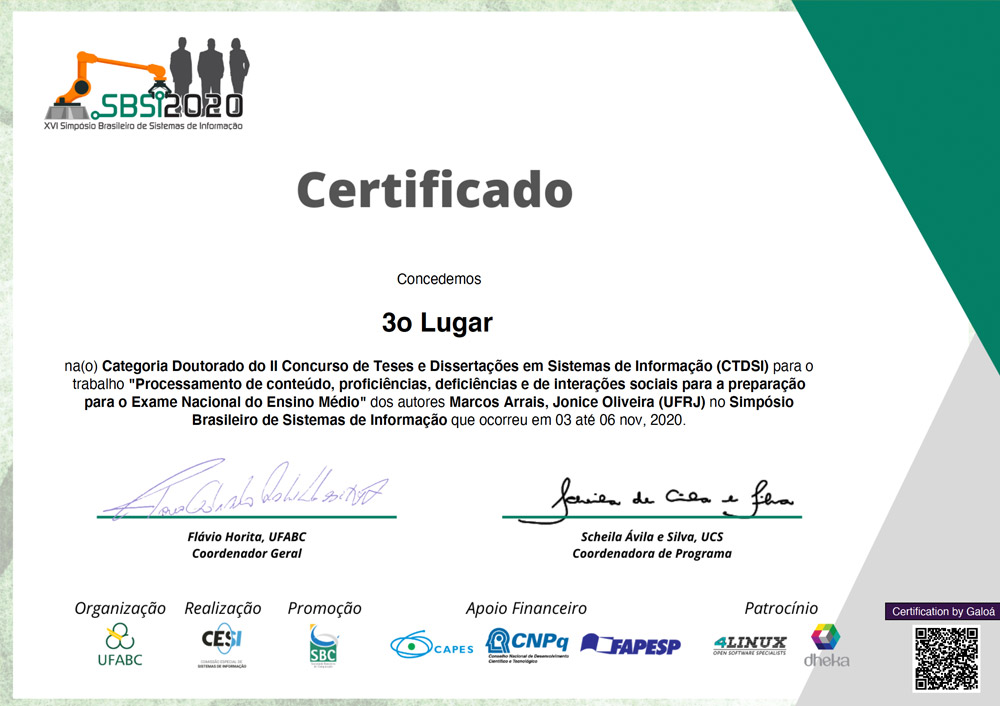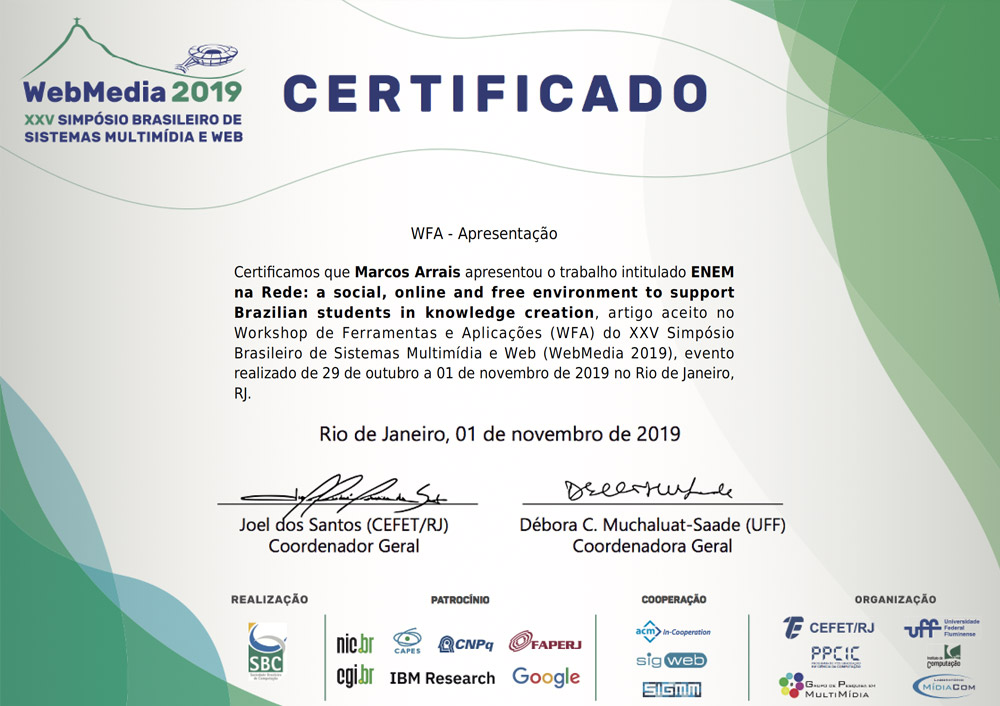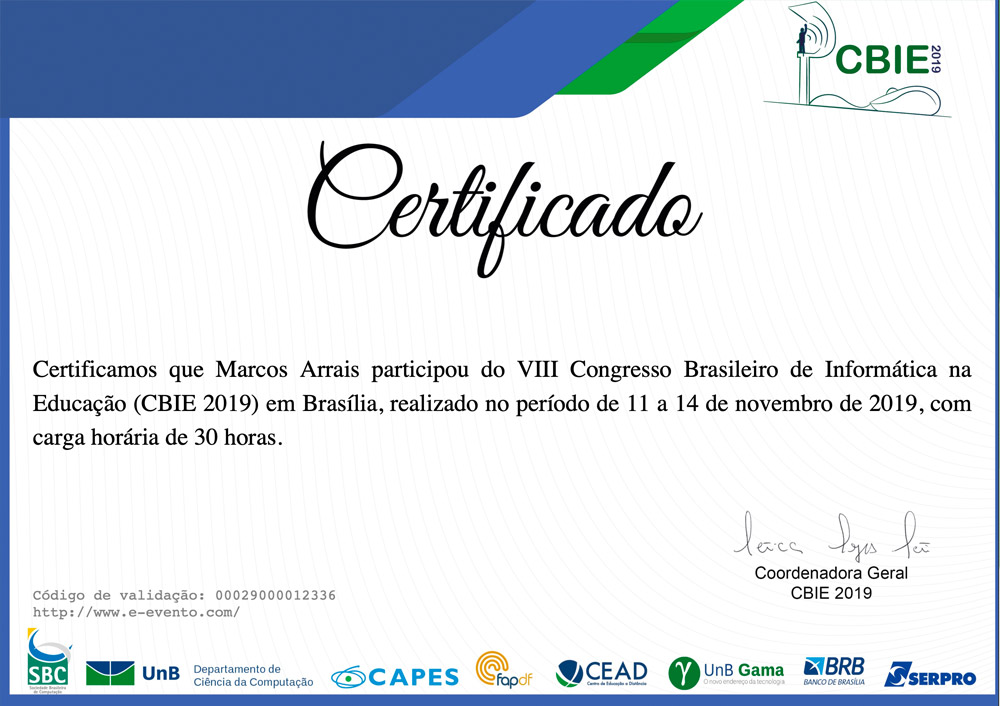ENEM NA REDE
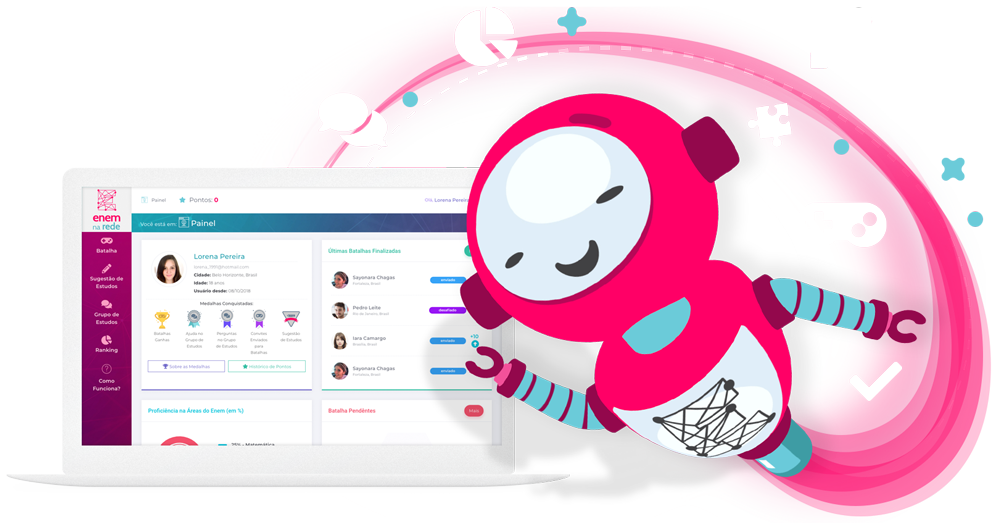
Project description
20 April 2019
4 years
Education
1 person
Concept
Research
UX/UI Prototype (low/high)
Graphic Design
Motions Graphics
Programming
Test
Blender 3D
Adobe Photoshop
Adobe Illustrator
Adobe After Effects
Python
PHP
HTML / CSS / JS
Bootstrap
Elastic Search
Selennium
Thousands of low-income students in Brazil require complementary studies in addition to their formal education in order to achieve good scores in the National High School Examination – ENEM, an exam that mediates the admission of students in Brazil to higher education – universities. This project is the result of my doctoral thesis in informatics at the Federal University of Rio de Janeiro (UFRJ) where I developed a method that, supported by an automated system and through quantitative and qualitative metrics, estimates the proficiencies and deficiencies of high school students.
In addition to measuring student growth, the system serves as a guide that mines for reliable learning content using a smart tutor that converses with the learner. Using the platform, students can independently improve their academic performance. The mobile/web tool’s activities are based on gamification concepts, and are built for high adaptability and engagement.
To evaluate the method, control groups were used to compare students’ academic growth. The evaluation showed positive indices that demonstrate the effectiveness of the proposed method.
In Brazil, economic disparity reflects upon admission rates for higher education. Low-income students often cannot compete with private school students for higher education admission. Low-income students require additional self-managed studies.
My doctoral thesis was born out of observation and the need to offer a free and open method to complement studies. The research generated a system capable of measuring and guiding student learning.
Problems:
Primary Problem: How to detect and collect knowledge deficiencies from high school students?
Secondary Problem: How can we formulate a study method that manages deficiencies and generates a study plan for the student?
Goals:
- Research needs of low-income students who are studying for the national high school exam;
- Create a cross-platform user-friendly interface;
- Create a gamification system to motivate and engage students;
- Create bots to mine trustworthy learning content from the web;
- Create an academic performance rating system to define what the student should focus on;
- Test the system with control groups;
- Improve the underlying technological system.
Basic tutorial of the platform to guide the student in the first access.
The project began with a thorough systematic review that evaluated 473 academic publications with related subjects. This research resulted in research cycles and deliveries based on the Design Science Research method. (DRESCH, Aline.; LACERDA. P. Daniel.; JUNIOR, A.V.A. José. Design Science Research. Bookman, 2015.)
Several visits were made to the school chosen to participate in the project. In the meetings, the students were interviewed to better identify their needs, tastes and expectations. The research had the full support of the school, parents and students.
All steps were validated by ethical consent instruments to ensure transparency and confidentiality of the information collected.
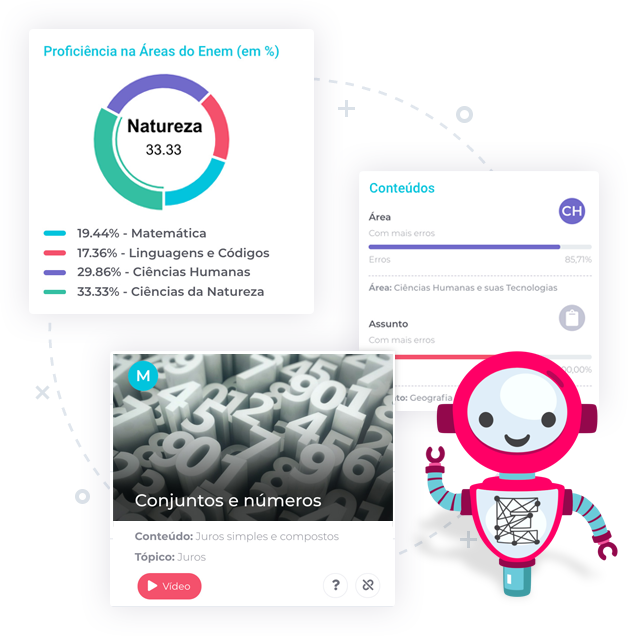
The identity of the smart tutor emerged from the observation that students needed support to sequence their studies, through guidance and encouragement. The tutor, named "Aê", means friend in an indigenous Brazilian language. The tutor was pointed out by several students in the platform's evaluation questionnaires as one of the reasons for the continued use of the system.
After establishing the school that would act as a partner in the project, two control groups were created, one that would use the platform and the other that would not. The groups had compatible age, income, gender and academic performance characteristics and were chosen in partnership with professors who helped to assemble equivalent groups.
The groups were submitted to tests in a controlled environment, to verify the student's real learning.
During and after development and during the application of learning measurement tests, several qualitative and quantitative questionnaires were applied to the control groups to understand the platform usage characteristics, deficiencies, points of improvement and success stories. This technique made it possible to shape the technical requirements of the platform so that objectives were achieved.
The platform has achieved excellent results in assessment tests and has been proven to help students expand their knowledge. It has been common to receive emails like this.
Translation:
"Hi! I wanted to thank you. Today the results of the entrance exam came out and I was approved in the Dentistry course. I wanted to thank the platform and Aê for helping me in my studies."
-Student user of Enem on the Net.
A responsive mobile experience
During the project’s development, a user survey pointed out that 78% of platform usage would be through mobile devices.
The project's wireframe was adapted to primarily serve mobile and be adaptable to large screens (desktop).
The concept of mobile first guided the construction of the UI.
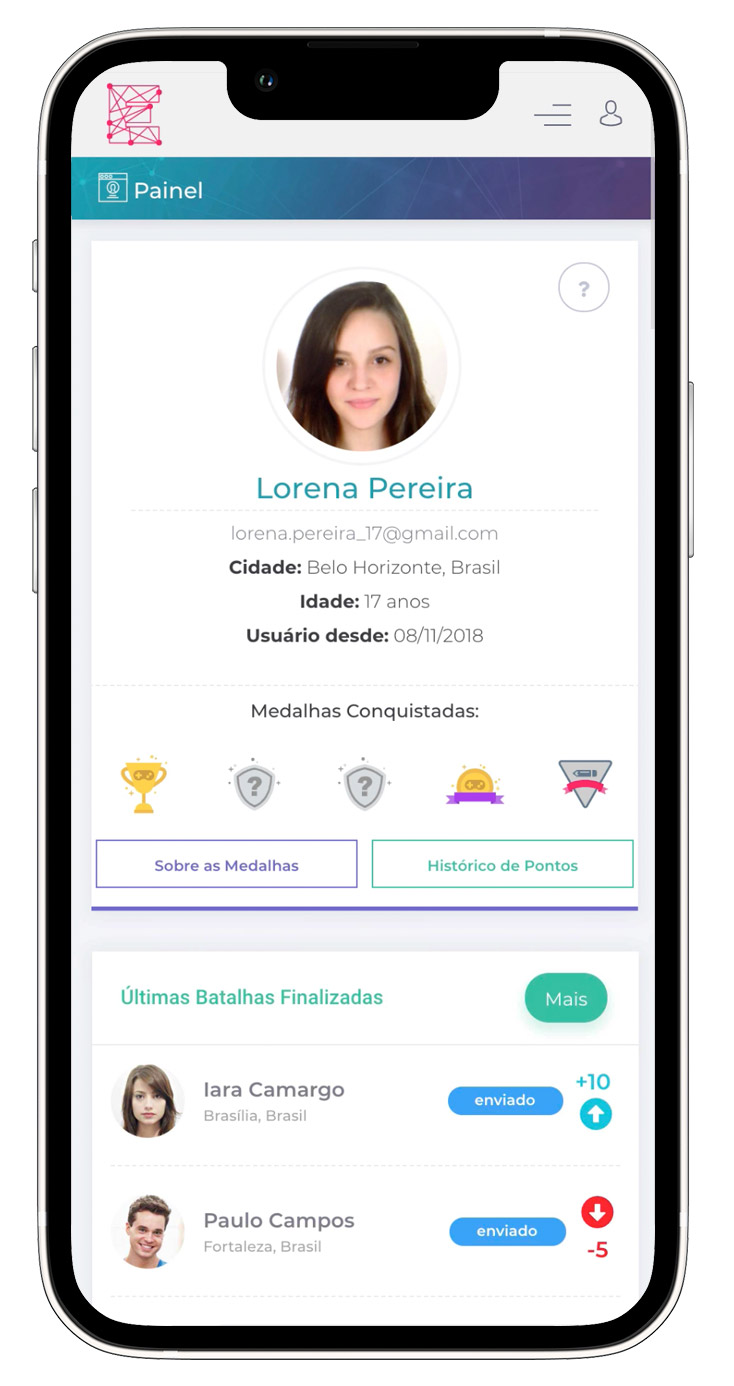
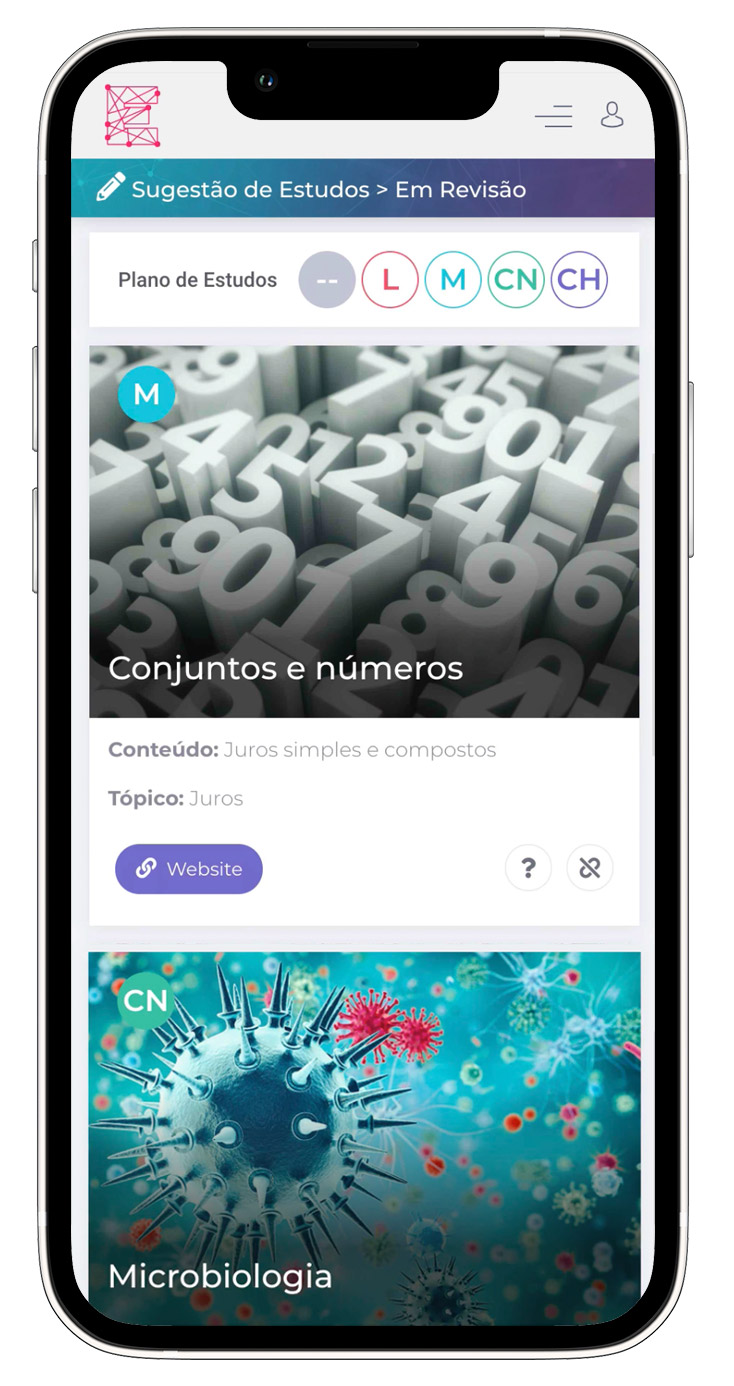
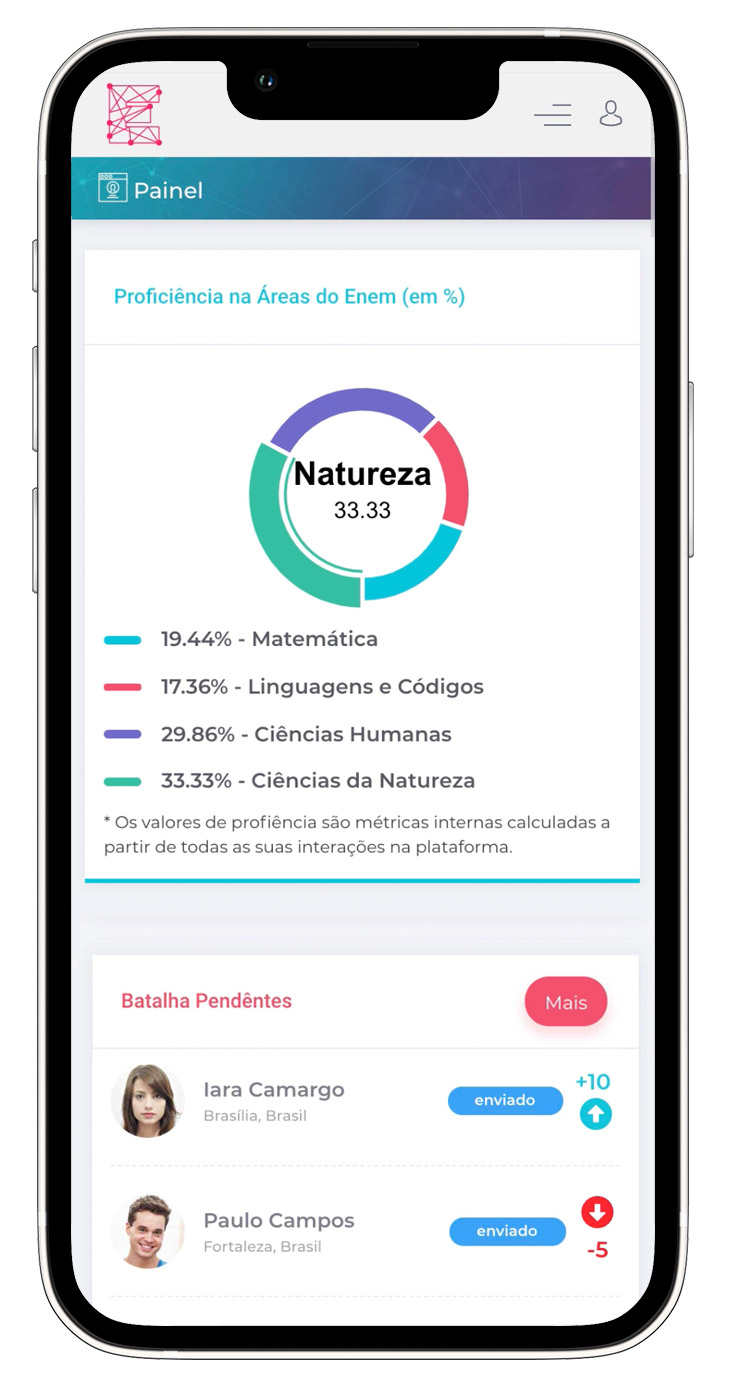
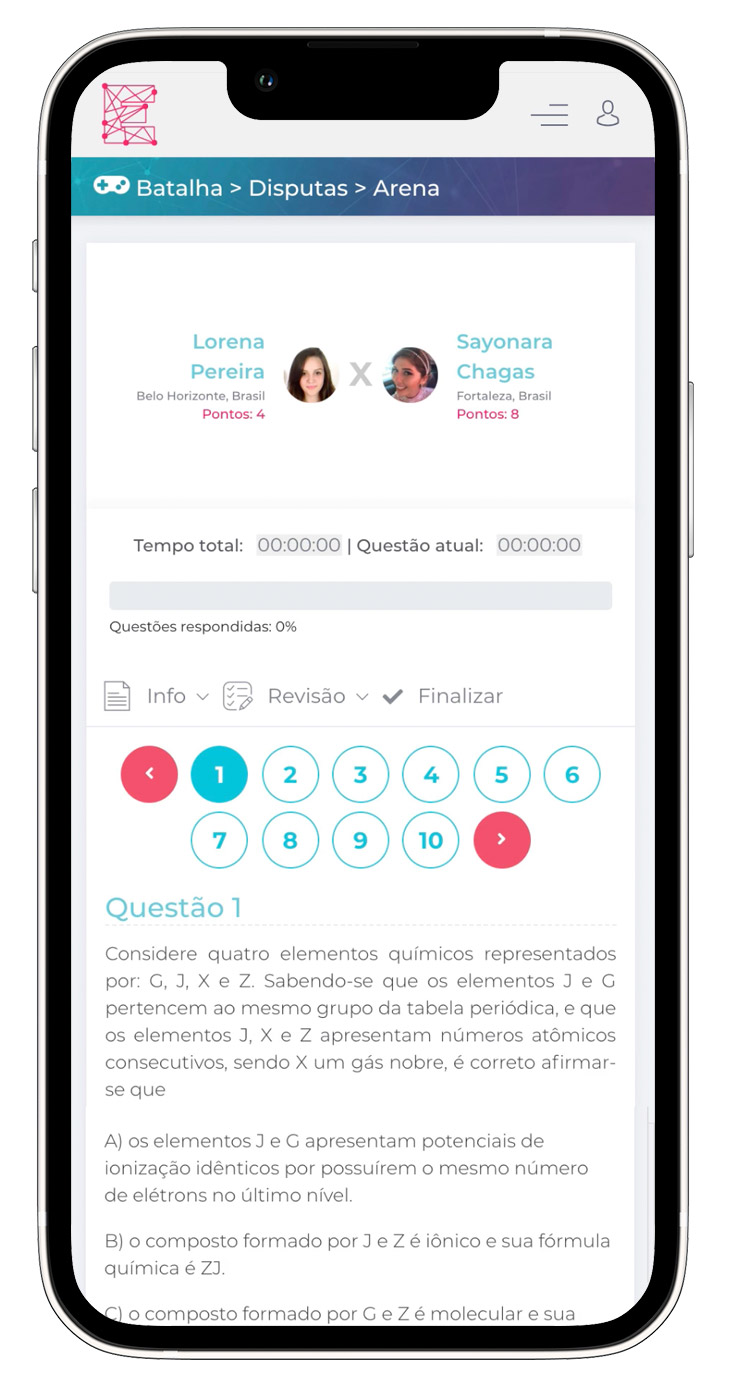
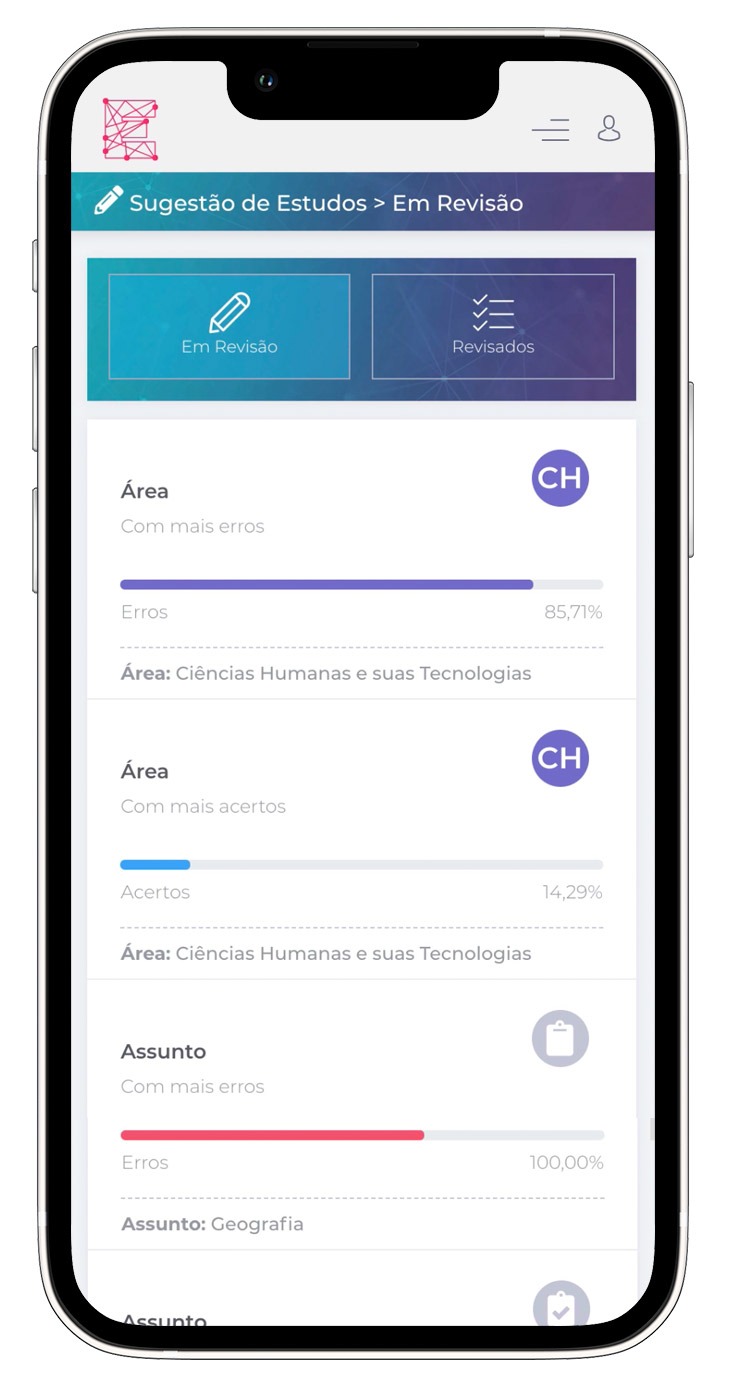
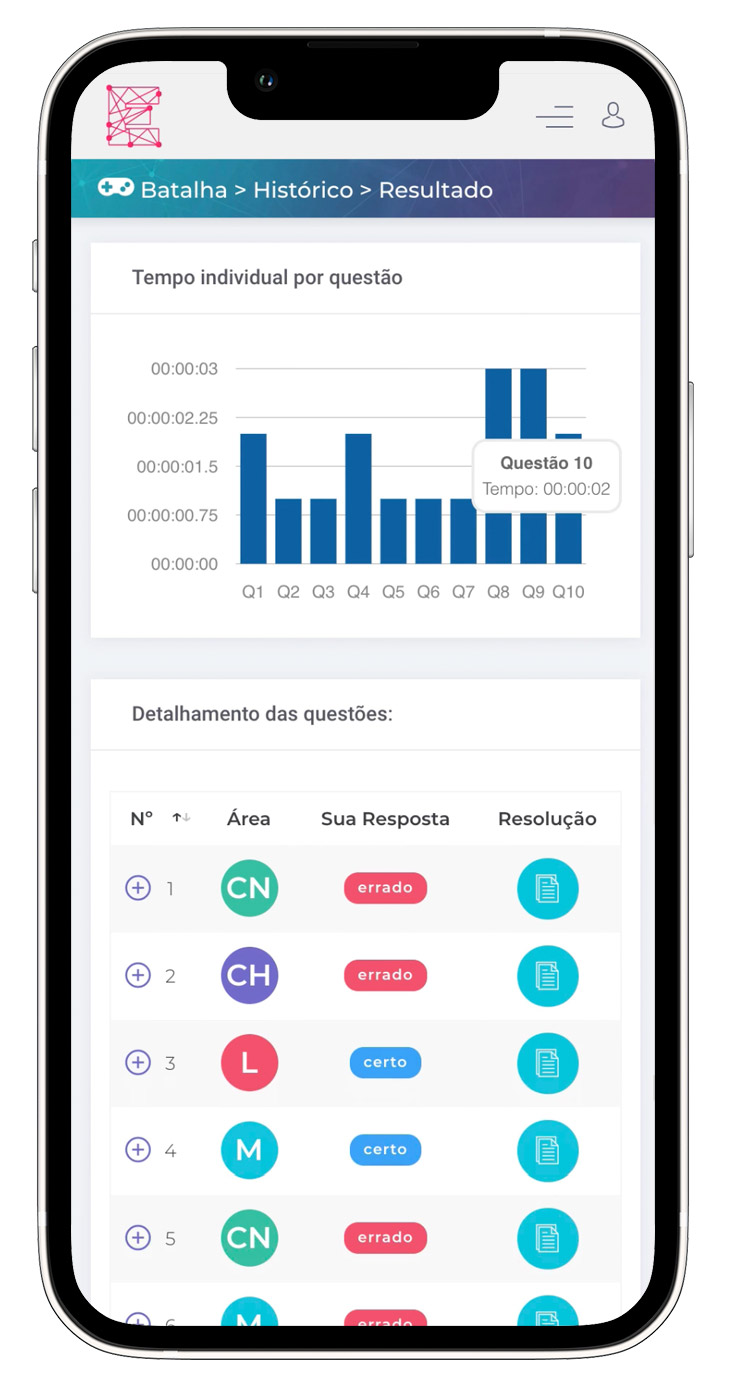
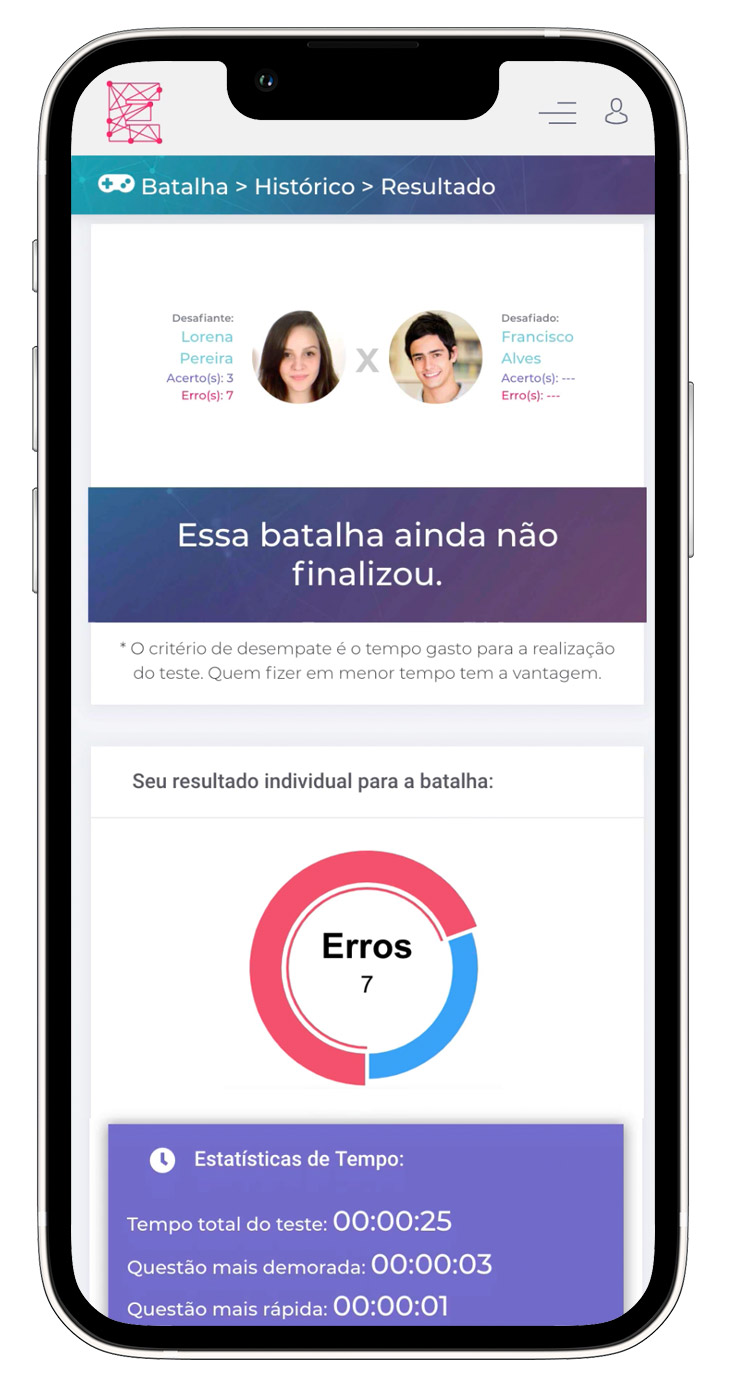
Advertising video to encourage new students to join the platform
Award for Best Work
This paper won the “best work in practice” award at the 2019 Brazilian Symposium on Human Factors in Computational Systems. Brazil’s largest congress on HCI.
For this article, this thesis won 3rd place for “Best Thesis of 2019” at the Brazilian Symposium on Information Systems – SBSI 2020.
3rd Place Award - Best Thesis 2019
This paper shows the concepts of information systems used in the platform. Such as: data mining, information retrieval, interoperability and web services.
For this article, my thesis won the 3rd place for “Best Thesis of 2019” at the Brazilian Symposium on Information Systems – SBSI 2020.
Tools and Applications Workshop
This paper presents the structure and functionalities of the “ENEM na Rede” tool, a free online platform that helps students from Brazil in preparing for the National High School Exam (ENEM). The application uses social networking and gamification concepts to build an engaging environment conducive to knowledge building. During the use of the platform students are introduced to the exam content through an automated method that detects deficiencies and proficiency in the exam areas.
Brazilian Congress of Informatics in Education
This paper deals with the importance of intelligent tutors in conducting the learning process as well as the use of gamification strategies to generate student involvement.
